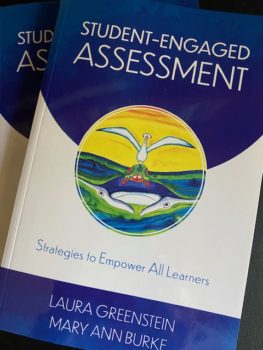 Why Your Child Hates School (Part 1)
Why Your Child Hates School (Part 1)
As a special education teacher, I’ve worked with students across the spectrum—both neurotypical and neurodivergent—who struggle with school. I see the frustration on their faces, the reluctance in their steps, and the exhaustion in their voices when they tell their parents, “I hate school.”
If your child has ever said these words, you’re not alone. Many parents hear this, and their immediate reaction is concern, frustration, or helplessness. Why does your child feel this way? Is it something specific, or is it just a phase? And most importantly—what can you do about it?
Why Kids Hate School: The Common Reasons
-
It’s Too Hard (or Too Easy)
For many students, schoolwork is either too challenging or not challenging enough.
- A child who struggles academically may feel frustrated and defeated, dreading school because it reminds them of their difficulties.
- A child who finds the work too easy may feel bored and disengaged, leading to a lack of motivation and even behavior issues.
For Neurodivergent Students: Many neurodivergent students, especially those with learning disabilities, ADHD, or autism, may struggle with processing speed, working memory, or attention, making learning feel overwhelming. Others, particularly gifted students, may feel unchallenged and unmotivated.
What Parents Can Do:
- If your child finds school too difficult, work with their teacher to explore accommodations, interventions, or additional support. A 504 Plan or IEP (Individualized Education Plan) may be necessary.
- If your child is bored, speak with the school about enrichment opportunities, acceleration, or more challenging assignments.
- Provide opportunities at home for problem-solving, creativity, and hands-on learning to keep their mind engaged.
-
Social Struggles and Peer Relationships
Friendships and social dynamics play a huge role in a child’s experience at school. If your child is struggling socially, school can feel like an emotionally exhausting place.
- They may feel lonely or left out.
- They may experience bullying or exclusion.
- They may have trouble understanding social cues or forming friendships.
For Neurodivergent Students: Many neurodivergent children struggle with social communication and may find it difficult to navigate friendships. Sensory sensitivities, misunderstandings, or rigid thinking patterns can also make social interactions stressful.
What Parents Can Do:
- Encourage social skills practice through role-playing, books, or structured social activities.
- Reach out to teachers or school counselors for support in fostering positive peer interactions.
- Connect your child with clubs, hobbies, or activities where they can meet like-minded peers.

Alison Whiteley has been a special education teacher for over 15 years, spending most of her time working with elementary students and families. After graduating from the University of Colorado with a Bachelor of Arts in Special Education and Psychology, she continued her education with a Masters in Reading from Walden University. In addition, she has achieved endorsements supporting Early Childhood Special Education and Diverse Learners which she uses to help identify needs across all learners.
Ms. Whiteley is trained in Wilson Reading System and Yoshimoto Orton-Gillingham. She believes all students can learn to read and be successful. She has served as a Special Education Coach and Mentor to fellow specialists and teachers, facilitated the creation of her elementary school’s Response to Intervention/Multi-Tiered Systems of Support (RTI/MTSS) process and helped parents through the Special Education process as IEP Coach for parents. In 2013 she completed the National Boards of Professional Teaching in Exceptional Needs with recertification in 2022. Her areas of expertise involve working with students with learning disabilities, supporting stakeholders moving through the special education process, and helping parents and teachers understand what they can do to support struggling learners in the public school settings.
She is a founding member of the Colorado Reading League and a member of the International Dyslexia Association in Colorado. Alison has two greyhounds and two nephews who keep her busy outside of school. She is the CEO of Toad-ally Exceptional Learners at http://www.toad-allyexceptionallearners.com. Alison is a valuable source of information to support teachers and parents, although she is not a lawyer and does not give legal advice. Her services support families through the IEP process and how they can be an equal member of the team through positive interactions. She focuses on collaboration and using tools to take IEPs to the new level of helping students achieve.
 How Students Assess Their Learning Outcomes
How Students Assess Their Learning Outcomes